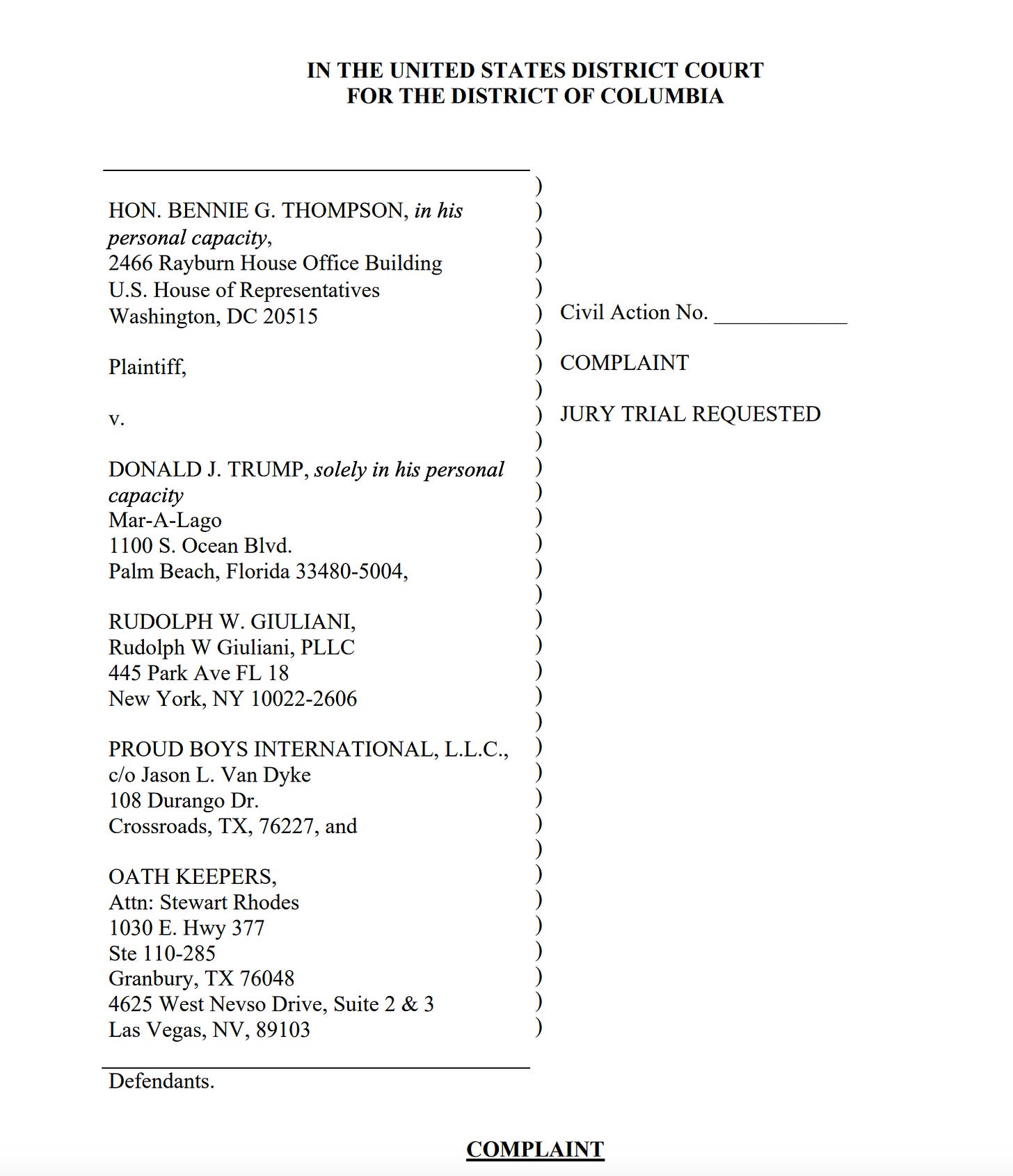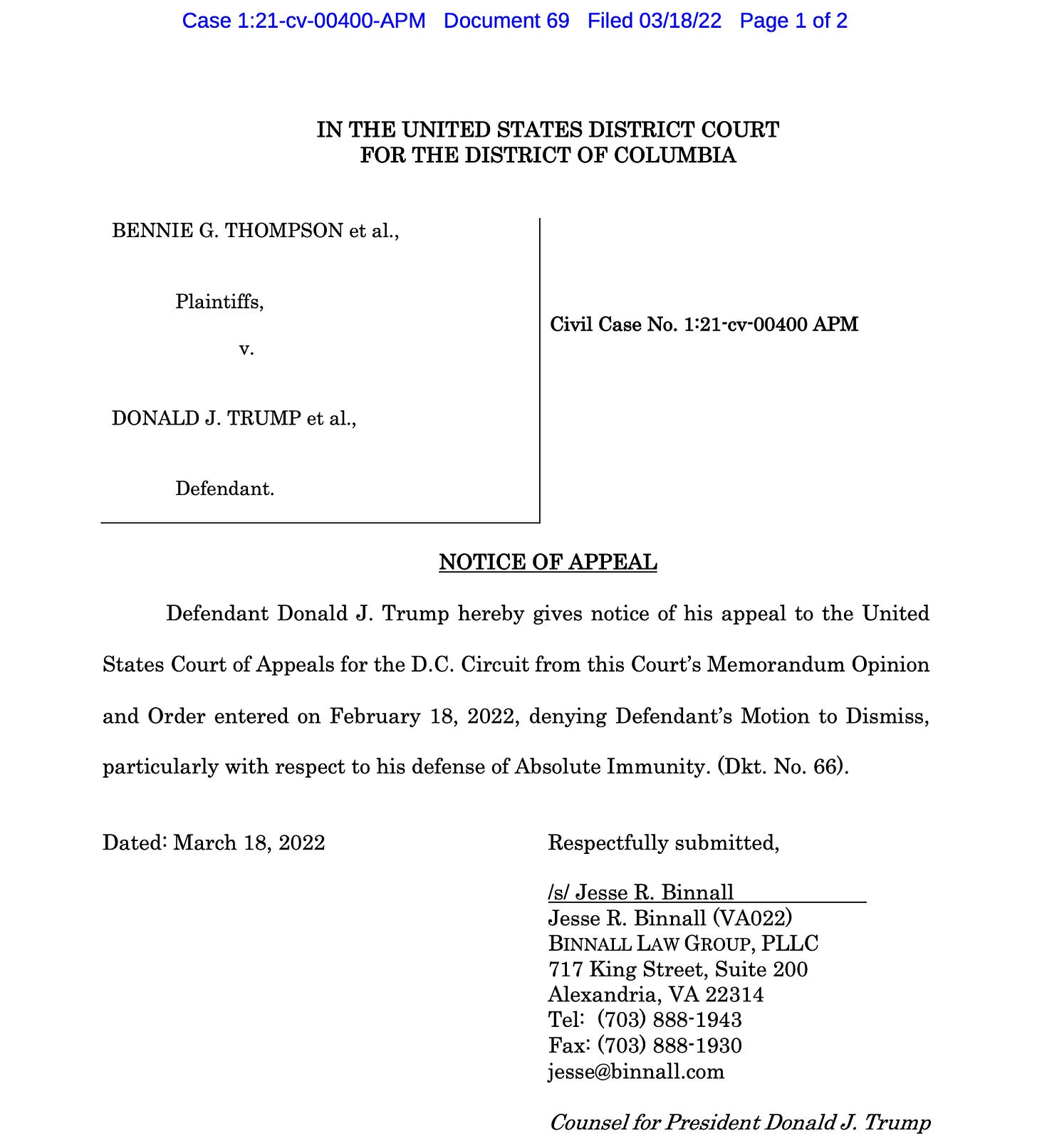Yesterday in Wisconsin, while discussing mass deportations, one of the priorities in Project 2025, Trump said that expelling migrants from the United States will be a “bloody story.”
Despite that and everything else, there is news in the most recent polls that isn’t great for the Harris-Walz campaign. They show the race at pretty much a dead heat—a point or two up for one candidate or the other but within the margin of error. The CBS/YouGov poll, for instance, has Harris up by a point in Wisconsin and Michigan and has Harris and Trump tied in Pennsylvania.
Harris herself has said she’s the underdog. She understands the assignment. This was never going to be easy, but it’s still sobering to see half of our fellow citizens saying they will vote for Trump. Even Dick Cheney won’t do that. What could possibly be the appeal?
That’s a question I asked, and was asked, over and over again this weekend at the Texas Tribune Festival in Austin, where people of different political stripes get together once a year to engage in civil discourse. Thousands of people attend three days of sessions that discuss federal, state, and local issues and feature current and former elected and appointed officials, policymakers, and candidates. It was the perfect setting to try and get some answers to the question, who would still vote for Donald Trump after everything we’ve seen and learned?
The problem is, there really isn’t a good answer. Most of the people I asked point blank either said they didn’t know or ducked the question entirely. Understanding why a voter would be attracted to Trump as a candidate is essential to figuring out how to talk with them, most importantly those who haven’t made up their minds yet but are considering voting for Trump. I have some guesses—I do live in a part of the country where a significant majority of people are Trump voters, and I’ve had the chance to talk with a lot of people about it. I’d love to know what you’re hearing and what you make of it, so please leave your thoughts in a comment.
Something I hear in Trump’s rhetoric is an effort to convince people there will be no place for them in Kamala Harris’ America. It is the same strategy he has always used: Divide people. Stoke hate. Stoke fear. And all too often, it seems to work, especially in an era where changing demographics mean that instead of a majority-white country, we are rapidly becoming a majority-minority country. Along with that, we have the emergence of strength in the LGBTQ+ community, with women, people with disabilities, religious minorities, immigrants, and others. All of that seems to be a concern for people who fear change, especially when those fears are enflamed by Donald Trump, who doesn’t hesitate to use lies to his own benefit.
In this moment, people need to be assured that with the changes, there will still be a place for them in America, that they are welcome. I’m always a little taken aback by people who support Trump even though it’s not in their own best interests to do so. But they are the people who need this reassurance the most. It’s easier to understand the political types—they want power. Or, they want relevance. In his new book, On Heroism: McCain, Milley, Mattis, and the Cowardice of Donald Trump, the editor of The Atlantic, Jeffrey Goldberg, tells a story about Lindsey Graham that’s illustrative. After John McCain died and Lindsey Graham attached himself to Trump, Goldberg had the opportunity to ask Graham why he was doing it, especially after Trump had initially refused to lower the flags at the White House to half-mast in the Senator’s honor following his death. Goldberg writes that Graham said to him, “Jeff, if you know about me, you know that I need to be relevant … You know who I was just on the phone with … Donald Trump is the president of the United States. That’s the truth. You think I’m going to go into exile?”
The people who can’t live without power and relevance are one thing, but what about the cashier at your local grocery store or the group of people traveling for a church ministry I chatted with in the airport today who were all Trump voters? What about family members, friends? Do they want their daughters to die from tubal pregnancies because they can’t get a lifesaving abortion procedure? Do they want to miss out on the joy of having grandchildren because IVF is unavailable? There are no easy answers. Maybe some of them don’t believe Trump will really do what he says he’ll do because it sounds so crazy—that’s what they will tell you. These are the folks who are in denial about Project 2025. It won’t be that bad, they say. That’s hard to comprehens since we all lived through the Muslim ban, family separation policy, and bleach and lights for Covid. At bottom, it’s hard to believe that anyone with a modicum of common sense supports Trump because his policies, like this week’s “child care is child care” hold promise for the future.
Trump is a racist. He used anger and white grievance about change to attract his base, and he continues to use it to persuade people that there won’t be any room for them in America if Democrats win. That means it’s important for Kamala Harris to reassure people that there is room for everyone, that a rising tide lifts all boats, and that her America is one with space for everyone to enjoy life and to succeed. Trump's policies don’t make sense, so I’m forced to conclude it’s fear and hate that he successfully peddles. But our strength as a country has always been in our diversity and our ability to embrace diversity, and especially new immigrants, and to emerge better, stronger, more successful, and more interesting. We can do that again.
That’s the message I’m hoping to hear from Harris in the debate Tuesday night when the folks who are committed to neither Trump nor Harris, will be listening. We need a joyful warrior who can help people understand that they don’t need to be afraid of change and that it can work for them. What we should fear is going back or treading water, particularly in a world that requires us to evolve if we are going to compete successfully in a new global economy. This is a moment for a leader who offers compassion and inspiration, the kind of courage that John F. Kennedy evoked in Americans, so that the country can finally reject the malignant cancer Trump injected into the body politic. Harris really means it when she says “for the people,” and her record proves it. The debate is a chance for her to explain that to people who need to hear it.
So despite the polls, don’t get discouraged. Get to work.
Don’t despair. Vote.
Most of the action we know we’ll see this week is on the political side of things. But we’ll see a little action in Trump’s court cases this week, and of course, there is always room for surprises.
Tuesday is the final deadline for the government to turn over discovery to Trump in the January 6 prosecution, although, as Judge Chutkan noted, that obligation is ongoing. Trump’s side seems to think the government is in possession of exculpatory evidence it hasn’t turned over. Exculpatory evidence is evidence that could help a defendant convince a jury that he’s not guilty, and prosecutors are obligated to turn it over to the defense promptly, whenever they learn of it. A failure to do so has catastrophic consequences for the prosecution’s case, so prosecutors have to take it very seriously, and here, the Special Counsel’s office says they have already turned over everything they have. We’ll see if there are any fireworks.
Wednesday was supposed to be the discovery deadline for immunity issues in a civil case over January 6 that was filed in 2021, and which you may have forgotten about with so much else going on. The case was brought by Mississippi Representative Bennie Thompson and alleges that Trump and others conspired to incite the January 6 attack on the Capitol. After he was named to head the January 6 committee, Thompson was replaced as the plaintiff by California Congresswoman Barbara Lee. So now the case is Lee v. Trump. Rudy Giuliani, the Proud Boys, and the Oath Keepers are also named defendants.
The case has moved slowly because, you’ll be shocked to learn, Trump took an appeal claiming he had absolute immunity from being sued to the D.C. Circuit. Trump filed the appeal in March of 2022, and the district court’s jurisdiction to proceed wasn’t restored until February of this year. In that civil case (as opposed to the criminal immunity case SCOTUS ruled in last term), the Court of Appeals held Trump was not immune because he was acting “as an office-seeker not office-holder” when he made his speech on January 6. The court characterized that as a campaign event, and held it didn’t fall within the “outer perimeter” of official conduct under the civil standard. That cleared the district court to proceed.
The Judge has been requiring monthly status orders in the case to update on the parties’ progress in discovery, and the case appears to be moving along. But in the most recently filed joint status report, on September 5, the Plaintiffs agreed that they would “not oppose the extension of the discovery deadline sought by Defendant Trump that would close the period for immunity-related discovery on October 28, 2024.” Delays in civil cases aren’t unusual. They progress far more slowly than criminal cases usually do. The delay is frustrating, but the discovery process can be fruitful. Whether anything will come of this and other civil cases brought over January 6 remains to be seen.
While we’re expecting more politics than law this week, that can always change, without warning.
We’re in this together,
Joyce








I feel compelled to write and share these facts because the future of my grandchildren, Natalie and Michael, hangs in the balance. The direction America is heading under leaders like Trump deeply concerns me, as it is a far cry from the values I hold dear—values of unity, compassion, and fairness. This country is much better than the divisive, fear-driven politics that are being perpetuated. I refuse to sit idly by while those who follow in Trump’s footsteps continue to chip away at the principles that should be guiding us toward a more just and inclusive future for generations to come.
————————————————————————
The Cult of Opposition: Understanding the Psychology Behind Trump’s Supporters
In modern political discourse, the relationship between leaders and their supporters often reflects a symbiotic exchange—one of mutual benefit. Typically, a leader provides tangible improvements to the supporters’ lives, who in turn offer their allegiance. However, Donald Trump's presidency introduced a paradigm shift that baffled many analysts. A significant portion of Trump’s base does not measure his success by what he does *for* them, but rather by what he does against those they consider adversaries. This phenomenon raises a critical question: why do Trump's supporters define his success not by policy achievements or personal benefit but by his ability to antagonize perceived enemies? In this research paper, we explore the psychology, sociocultural factors, and communication strategies behind this phenomenon, offering a deep dive into the mechanisms that sustain this unwavering loyalty.
The Psychology of "Othering"
At the heart of this dynamic lies a fundamental psychological concept known as *othering.* Othering refers to the process of creating a division between "us" and "them," where "them" are people deemed different or antagonistic to one's own group. Social identity theory posits that individuals derive part of their self-worth from their membership in groups (Tajfel & Turner, 1979). When Trump attacks certain groups—be they immigrants, Democrats, or marginalized communities—his supporters feel that their in-group (conservative, predominantly white Americans) is being validated. The "other," typically those outside their cultural or political bubble, becomes a target of scorn and aggression. By constantly positioning himself against these groups, Trump reassures his supporters that they are on the winning side of a cultural war.
This is where the success metrics diverge from typical political calculations. Success, in the eyes of Trump's supporters, is not rooted in economic growth or policy achievements, but in the symbolic victories won over those they disdain. Trump’s antagonistic rhetoric serves as a rallying cry for a base that measures success by how effectively he torments the "other."
Fear as a Unifying Emotion
The divisiveness Trump exploits is not built solely on disdain for others but on deep-rooted fear. Research has shown that political conservatism often correlates with heightened fear responses (Hibbing, Smith, & Alford, 2014). These fears manifest in concerns over demographic changes, perceived threats to cultural identity, and economic anxiety—particularly in the wake of globalization and immigration. For Trump’s base, he offers not only validation of their fears but also an outlet for their anxiety: the vilification of outsiders.
By acting against these outsiders—whether through harsh immigration policies, vilification of the media, or incendiary tweets targeting "leftist elites"—Trump provides a sense of catharsis to his supporters. It’s not about building bridges or creating new opportunities; it’s about protecting their identity and keeping perceived threats at bay. In their minds, Trump’s success is defined by his defense of the status quo against forces of change.
The Appeal of a Strongman
This dynamic is exacerbated by the allure of authoritarian leadership, often characterized by a leader who promises protection and order while silencing dissent. Trump's rhetoric—filled with hyperbole, aggressive language, and dismissive attitudes toward political correctness—resonates deeply with those who feel disempowered by societal changes. Studies have shown that authoritarian personalities are drawn to leaders who project strength and offer simple, binary solutions to complex problems (Feldman, 2003). Trump’s combative style against the "other" fits neatly into this framework.
In this context, Trump is seen as the protector, someone who will go to any length to defend his supporters from external threats. His aggressive behavior—though often condemned by critics—is perceived by his base as a strength. In their eyes, his relentless attacks on groups like the media, the "deep state," or racial minorities are evidence of his success as a leader willing to do whatever it takes to secure their safety and identity.
The Role of Media and Propaganda
An essential factor in maintaining this dynamic is the role of right-wing media in amplifying Trump’s actions *against* others while downplaying or ignoring any lack of substantive achievements. Fox News, Breitbart, and other conservative outlets often frame Trump’s attacks on immigrants, liberals, and the media as necessary battles in a larger cultural war. Through selective reporting, these outlets reinforce the idea that Trump’s presidency is less about improving the lives of his supporters through policy and more about the symbolic victories he achieves through opposition to their perceived enemies.
Trump himself understood the power of media manipulation, often stoking controversy to keep his name in the headlines. As noted by philosopher Hannah Arendt, in authoritarian regimes, propaganda serves to simplify the world into friend versus foe (Arendt, 1951). By keeping the public focused on his skirmishes against the "other," Trump ensured that his base remained engaged and energized, even when his policies provided little material benefit to their lives.
The Social Contract of Aggrievement
This relationship between Trump and his supporters can be understood as a kind of *social contract of aggrievement.* While traditional politicians offer economic benefits, infrastructure improvements, or social programs, Trump offers emotional validation. His base, particularly those who feel marginalized by economic shifts or demographic changes, finds solace in his outward displays of aggression. His ability to provoke outrage in the "other" reassures them that they are still relevant in a world they fear is changing too fast.
Interestingly, this contract does not require Trump to follow through on traditional metrics of success like job creation or healthcare reform. His supporters are not primarily concerned with how he improves their lives directly. Instead, they focus on how he reinforces their worldview—one where they are under constant attack and where Trump is their defender. This emotional satisfaction creates a loyalty that transcends policy, rooted instead in the shared sense of grievance and resentment.
Conclusion: A Loyalty That Transcends
In understanding Trump’s success, it is critical to recognize the unique metrics by which his supporters measure his achievements. His base does not primarily seek economic relief or policy victories; they seek validation of their fears and grievances. By acting *against* the "other," Trump provides emotional and psychological sustenance that traditional political figures often fail to deliver. His success, therefore, lies in his ability to symbolize and enact opposition rather than constructively improve the lives of his supporters. As long as Trump continues to antagonize those perceived as threats, his base will remain loyal, even in the absence of tangible benefits.
In the end, the tormenting of the "others" does more than sustain them—it defines them.
Jay Kuo reposted this earlier today on Facebook. The bottom line is that the polls, and poll aggregators, continue to appear extremely skewed toward Trump. I continue to ignore the polls and look at what has happened in elections over the past two years. The midterms were not the MAGA landslide that was predicted, and races that were predicted to be close, when the issues were abortion rights and basic defense of democracy, turned out to be progressive landslides, with 60+% of the vote supporting progressive positions. We just have to keep our heads down and keep working toward the outcome we want. https://www.facebook.com/nycjayjay/posts/pfbid02qxLbQsesUrUca1rh1zH3HcCuBH4yGnjpYEF45jZmujiKwvr8qRp8RUVDmJ9LgrvMl